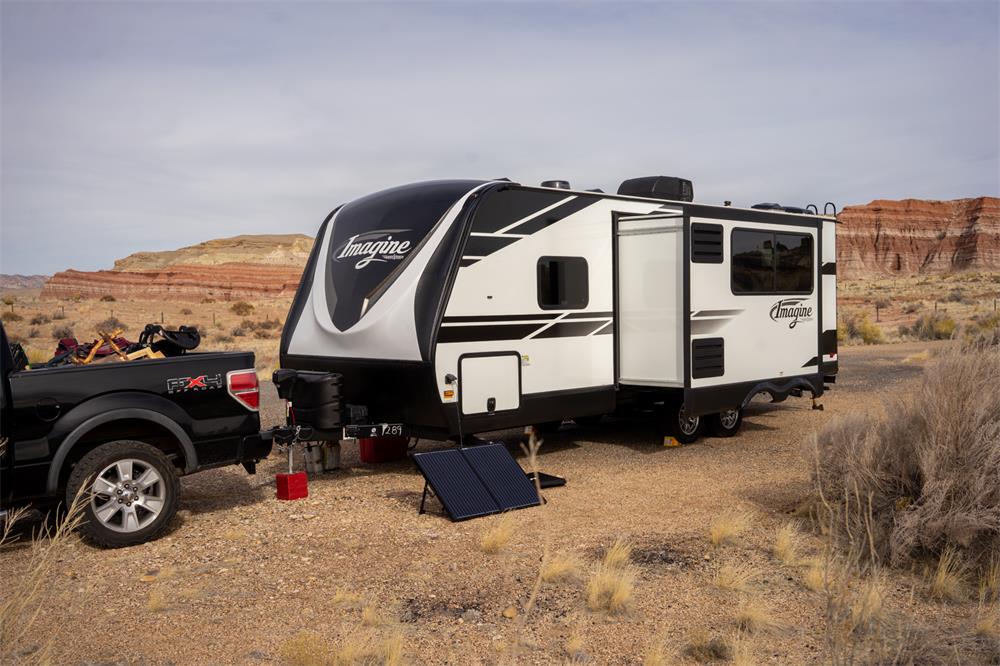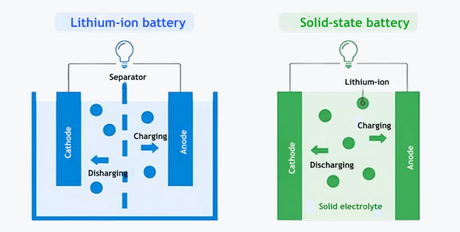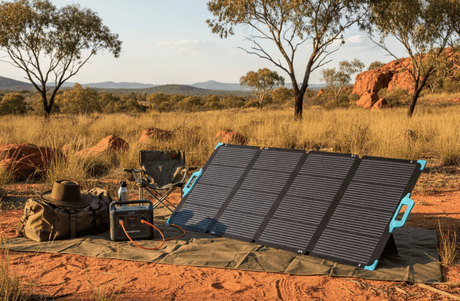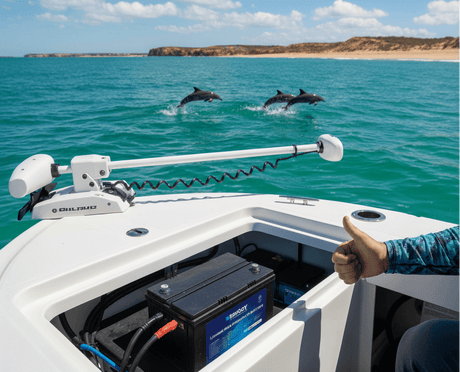Are you planning a residential solar installation? Do you want a high-quality solar panel system? If so, then planning is everything.
With proper planning, you can ensure an efficient solar installation process. Below, we tell you everything you need to know about solar panel efficiency. By incorporating this information into your planning process, you can choose the ideal components for your new solar panels.
If your solar panels are improperly configured or designed, obstructed by precipitation or dust, or inefficient in any other way, these issues can reduce a panel’s energy production rate and create adverse circumstances.
What Is Solar Panel Efficiency?
Simply put, solar panel efficiency is the rating that measures the amount of sunlight captured by your solar panels. For example, if a panel has an efficiency rating of 15%, it absorbs 15% of all sunlight that hits its surface. The higher the rating, the better your panel is at converting sunlight into usable energy. Most panels range from 15% to 20% efficiency.
If two panels receive an identical amount of sunlight, the panel with the higher rating will produce more usable electricity. While 5% may not seem like a huge difference, you must opt for the most efficient panels when shopping for solar panel kits.
Why Does Solar Panel Efficiency Matter?
As noted above, most panels available today have an efficiency rating of 15% to 20%. These panels incorporate a photovoltaic (PV) material, which is designed to absorb sunlight.
When planning your efficient solar installation, you will encounter panels of various sizes and ratings. However, the two standard panel sizes are 60-cell (39” X 65”) and 72-cell (39” X 77”).
Contrary to popular belief, purchasing high-efficiency solar panels is not about increasing production. It is actually centered on optimizing your use of additional space. This detail is significant if you have a small roof or live in a metropolitan area with minimal yard space. An efficient solar installation process allows you to make the most out of the space available to you.
Solar panel efficiency continues to improve year after year. Unfortunately, getting the latest and greatest technology will typically cost more than readily accessible products. As long as you plan your solar installation properly, you can still achieve your dream of a solar-powered home.
How to Maximize Solar Panel Efficiency
As you can see, you must take the time to plan an efficient solar installation. By following the detailed steps below, you can successfully build an efficient solar system for your home.
Estimate Your Solar Electricity Needs
First things first, you must get an accurate estimate of your home’s solar electricity needs. You may be wondering how in the world that you do that. Well, the simplest method is to use this handy calculator. It can help you choose the appropriate size of solar, determine the proper cable gauge, and even pick suitable batteries and charge controllers.
You should also review your electrical bills for the past year or so. It is essential that you use data from the highest bills to assess your solar electricity needs accurately. Make sure you plan ahead and factor any coming changes into your estimate. For example, if you plan on purchasing an electric vehicle in the near future, account for this additional usage.
If you want an efficient solar installation, your estimates must be as accurate as possible. Undershooting your calculations can leave you hopelessly dependent on traditional power sources. It can also force you to order additional equipment piece by piece, which is more costly than making a single bulk order.
Implement Energy Efficiency Measures
You should also plan on implementing some energy efficiency measures before making the switch to solar. This strategy can help you reduce your electricity needs, save money, and make a 100% solar home a reality.
There are many ways to assess your home’s energy usage. Perhaps the most effective is to request a home energy audit. An audit will show you exactly where or how your home is losing the most energy. After you diagnose energy efficiency concerns, you can take a targeted approach to upgrade your home.
You should also adjust your appliance usage. Certain appliances such as your dryer, dishwasher, and water heater use a tremendous amount of electricity. Upgrading to modern, energy-efficient alternatives can reduce your environmental impact.
While you are making energy efficiency improvements, you may want to swap out those old lightbulbs. LED lighting uses far less electricity and can help your switch to solar go off without a hitch.
The vast majority of energy inefficiency in homes is due to inadequate heating and cooling practices. Examples of these practices are insufficient insulation, an outdated HVAC system, or over-reliance on the cooling unit. Weatherizing your residence and adjusting your HVAC usage will drastically reduce your electricity consumption.
Not every single measure has to be completed before making the switch to solar. However, the more adjustments you make, the better your chances of achieving optimal solar panel efficiency.
Adjust Direction and Tilt of Solar Panels
As discussed above, it is essential that you properly plan out your solar panel installation. A crucial part of your planning process should involve choosing the correct tilt and direction of the panels. While you can adjust the tilt of your panel, it is difficult to change the direction that the panels are facing after they are installed.
Ideally, you want your panels to face towards the equator. In Australia, this would mean turning your panels to the north. If you do not have a north-facing roof, you can still make the most of your solar panel installation with an east/west roof. However, you will need a few extra panels to achieve the same total power output.
The tilt is also critical. There are many schools of thought concerning how much to tilt solar panels. Perhaps the easiest option is to set the tilt angle equal to your current latitude. For instance, if your latitude is 39.7122° N, your panel angle should be approximately 40 degrees.
Calculate Hours of Sunlight by Area
Solar panels are an excellent option for many regions of Australia. With that said, you must calculate the peak sunlight hours for your area. A peak sun hour is an hour of sun exposure that creates a solar irradiance intensity of 1,000 watts of energy per square meter.
The peak sun hour threshold is significant for several reasons. For one, that is the amount of sunlight used to rate and test solar panels in a controlled lab setting. At peak sun hour, your panel will be producing close to its specific output rating.
If your area does not have enough peak sun hours on a regular basis, then solar panels may not be the best investment. Fortunately, the vast majority of Australia receives enough peak sun hours per day to facilitate efficient solar installation.
Perform Regular Solar Panel Maintenance
Solar panels are incredibly durable devices that will last for decades with a bit of TLC. However, neglecting routine solar panel maintenance will significantly impact the efficiency of your panels and will ultimately reduce the lifespan of your equipment.
Fortunately, basic panel cleaning is relatively simple and can be performed without the assistance of a professional. The biggest enemy of panel efficiency is dust and debris build-up. While the thin film of dust accumulated on your panels may not seem like a big deal, it will interfere with the PV’s ability to absorb sunlight.
All you need to do to clean your panels is to rinse them with a water hose. If your panels are easily accessible, you can also brush them off with a broom. Be extra cautious when cleaning roof-mounted panels, as a fall can cause significant injury.
If you live in one of the areas of Australia that experiences heavy snowfall, you will also have that to contend with. If the angle of your panels is correct, snow may easily slide off. But if snow builds up, you will need to clear it to keep your panels functioning correctly.
When clearing snow, be sure to use a soft brush to avoid scratching the glass casing of your panels. Scratching your efficient solar installation will cost thousands to repair. If ice accumulates on the panels, use warm water to melt it away. Be sure that the water is only lukewarm and not excessively hot to avoid cracking your panels.
Choose the Right Equipment
Completing your efficient solar installation takes much more than just buying the right panels. While the PV panels are responsible for capturing sunlight and creating energy, they are only one part of a more complex system. You will need several other components to create a functional solar system. These include:
Inverters
Inverters are specific types of electrical converters. They are responsible for converting the direct current energy produced by your solar panels into alternating current. The alternating current can be used by your electrical network, fed into a commercial grid, and used to power auxiliary devices.
Batteries
Without batteries, any energy produced by your solar panels will be fed back into the commercial grid or go to waste, which would drastically limit the efficiency of your solar panels. You need the correct number and size of batteries to store enough energy to power your home through the night.
Portable Solar Generators
Depending on your goals, you may also need portable solar generators. These devices are used in conjunction with solar panels to power RVs, large boats, and other mobile commodities.
Obtain Bids and Site Assessments from Contractors
While solar installation requires a significant initial investment, it is a worthwhile venture that will pay dividends for years to come. However, not all solar installation providers are created equal.
When planning out your efficient solar installation, you should be sure to obtain bids and site assessments from licensed contractors. Installing your own network is a feasible undertaking, but it is highly complicated.
You may be surprised how affordable it is to hire contractors to complete the install. Do not jump at the first bid. Obtain multiple quotes and find out specifics. You need to find out what equipment they use, the efficiency rating of the panels, and if they provide a warranty. By weighing your options, you can optimize solar panel efficiency and get a great deal.
Take Advantage of Available Financing and Incentives
If you want to get the most out of your solar installation, be sure to capitalize on any incentives and financing options. By financing the project, you can reap the benefits of solar panels without having a massive upfront cost.
Many companies also offer incentives and bulk order discounts. When buying an entire solar system for your home, you may be eligible for rebates and other price reductions. Take the time to improve your home’s energy efficiency while you shop around for that great deal.
You should also check with your local government to see if they offer tax rebates and other incentives. You might even be able to sell excess power back to the local utility company. Talk about a win-win!
Get the Most Out of Your Solar Installation
If you want to get the most out of your efficient solar installation, incorporate the tips above. Plan ahead and assess the costs of solar panel installation. You may be shocked at just how much energy you are wasting. You will be even more surprised at how affordable solar panels can actually be.
When you are ready to move forward with your efficient solar installation, Renogy can help. We sell a variety of residential and commercial solar products. Our product offerings include:
Solar panels
- Solar kits
- Charge controllers
- Battery chargers
- Inverters
- Batteries
- IOT monitoring equipment
- Accessories and wiring
Renogy is your one-stop source for everything solar. We can help you optimize your solar panel efficiency, plan out your new system, and keep it working great for years to come. We even offer commercial solutions for your business. Check out our great selection of high-quality solar panels today!









![What Is a DC to DC Battery Charger [Comprehensive Guide]](http://au.renogy.com/cdn/shop/articles/IMG_3829_bd86de74-31d6-49fd-b9d5-265bb723091d.jpg?v=1757582605&width=460)